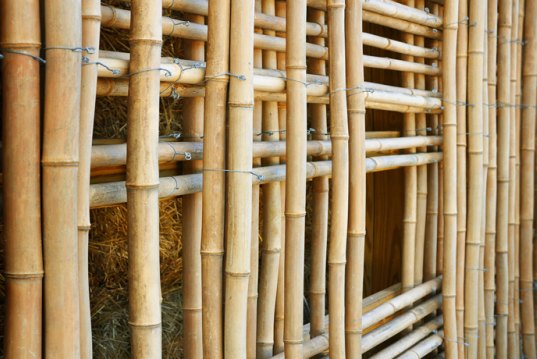Kenya has been advised to adopt use of sustainable building materials that are more cost effective and environmental friendly.
National construction Authority Director Daniel Manduku says the use of sustainable building materials will help to achieve sustainable development goals needed for growth in Kenya and Africa at large.
Speaking at the LafargeHolcim Awards in Kenyan capital Nairobi Mr Manduku exuded confidence that the proposed Building Code Bill awaiting debate in parliament will allow for a review of construction materials used locally(in Kenya) in favor of more versatile products.
The law seeks to allow the use of more sustainable building materials such as straw, bamboo or clay as construction materials.
The use of brick and mortar in housing construction is expensive and as such has denied Kenya and other African countries the impetus to build million of houses needed to curb housing shortage in the country.
“The combined population of Nigeria’s fastest growing cities: Abuja, Benin City, Ibadan, Kaduna, Kano, Lagos, Onitsha and Port Harcourt is expected to swell to 54million by 2030, according to UN Habitat,”she added.
LafargeHolcim Foundation believes that the adoption of sustainable building materials can play a major role in making housing more affordable in Africa.
The regional winners in three categories including Main, Next Generation and Focus were awarded a total of $330,000. Over all, the company has awarded $2 million in prize money in each three-year circle.
Yasaman Esmaili, founder of Studio Chahar, was scooped The Gold Regional Award. The company builds smart affordable homes.
Together with co-founder Mariam Kamara they were recognised for their developmental project that aims to create a platform for passing on knowledge to the inhabitants of the region around Dandaji Village in Niger.
The Silver 2017 Middle East Africa award went to Fatima-azzahra Bendahmane, founder of Ecoactiva, in Casablanca, Morocco for an elementary school and craft training centre in Morocco.
Meanwhile the Bronze 2017 Middle East Africa went to Joana Dabaj (Tripoli), Riccardo Conti; Matteo Zerbi, and team from London for adaptive reuse for refugee education in El Marj, Lebanon.
During this year’s competition, Kenya had 22 participants up from 8 in 2014. The main category of the competition was open to among others architects, project owners, building and construction firms.
However none qualified for the top awards. Project Participants addressed innovation and transfer ability, social participation, economic viability as well as environment performance.

